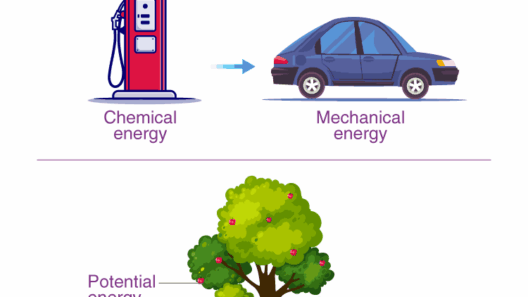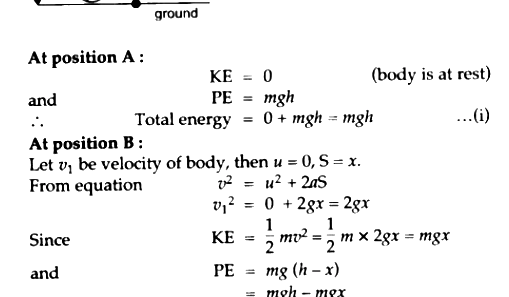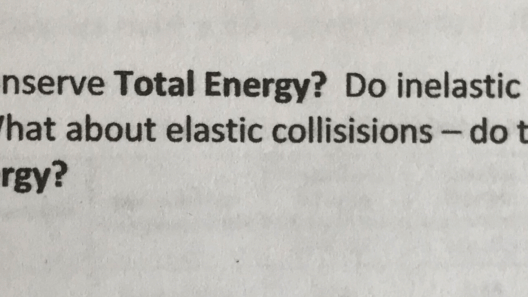Energy conservation represents a paradigm shift in our approach to resource management. It encompasses the judicious use and responsible stewardship of energy to mitigate wastage and promote sustainability. This exploration seeks to demystify the nuances of energy conservation and illustrate its critical connection to energy efficiency. Through this inquiry, we can kindle a renewed understanding of how conscious energy utilization can foster a sustainable future.
Understanding energy conservation necessitates a fundamental grasp of energy efficiency. Often used interchangeably, these concepts, while intertwined, encapsulate distinct principles. Energy efficiency refers to the use of technology that requires less energy to perform the same function. Conversely, energy conservation is more behavioral—it involves implementing practices and habits that reduce overall energy consumption. By delving deeper into these elements, we can highlight the importance of each in our daily lives.
The essence of energy conservation lies in the recognition of its finite nature. As global energy demands swell due to population growth and industrialization, the pressing need for sustainable energy management becomes paramount. Conservation practices not only help in reducing energy usage but also lead to substantial economic savings. Understanding the implications of our energy choices enables individuals and communities to contribute to a larger cause—mitigating climate change and sustaining natural resources.
The importance of energy-efficient technologies cannot be overstated. From energy-efficient appliances to building designs that prioritize natural light and ventilation, these innovations can dramatically reduce energy expenditure. For example, LED lighting consumes significantly less electricity than traditional incandescent bulbs, leading to lower utility bills and decreased greenhouse gas emissions. Educating oneself about these technologies is essential. They extend beyond mere convenience—they symbolize a shift towards environmental responsibility.
Adopting energy conservation practices requires a multi-faceted approach that combines individual action with systemic change. Each person can begin by making small, manageable changes in their daily routines. Simple actions like turning off lights when leaving a room, utilizing public transport, or investing in energy-efficient appliances can significantly impact collective energy consumption. These habits, although seemingly modest, represent a broader cultural shift toward sustainability.
Moreover, community engagement amplifies the effectiveness of energy conservation strategies. When individuals unite to consider collective energy usage—whether through neighborhood programs aimed at reducing energy consumption or local initiatives promoting renewable energy sources—significant strides can be achieved. This community-centric approach fosters a sense of collective responsibility and encourages collaborative problem-solving around energy challenges. The engagement of local governments in these initiatives is crucial. Policies that incentivize energy conservation, support renewable energy projects, and educate citizens on best practices enhance the effectiveness of individual efforts and drive systemic change.
Shifting Our Perspective: The Psychological Barriers to Energy Conservation
Despite the obvious advantages of energy conservation, psychological barriers often impede widespread behavior change. Our immediate gratification culture can provoke resistance to energy-efficient choices that require upfront investments. Individuals may perceive energy-efficient options—like installing insulation or energy-efficient windows—as costs rather than long-term savings. This misunderstanding can perpetuate a cycle of inefficiency.
Distilling energy conservation into its core benefits—such as monetary savings, enhanced comfort, and environmental impact—invites a fresh perspective. By recognizing the multifaceted benefits of energy efficiency, individuals and organizations can reshape their attitudes toward energy use. Implementing behavioral nudges, such as prompts to unplug devices or reminders for periodic energy audits, can effectively encourage energy-saving habits. Fostering awareness about these behavioral paradigms equips individuals with the tools needed to make informed decisions and contribute meaningfully to energy conservation efforts.
The Role of Renewable Energy in Energy Conservation
Renewable energy sources such as wind, solar, and hydroelectric power play an integral role in fostering energy conservation. Investing in renewable energy reduces reliance on fossil fuels, thus decreasing overall energy consumption and greenhouse gas emissions. Transitioning to renewable energy sources represents an essential facet of a sustainable energy future, contributing to both the mitigation of climate change and the promotion of energy independence. Governments and businesses investing in renewable energy infrastructure present a promising avenue for public engagement on energy conservation. This dual approach—not only focusing on energy efficiency but also advocating for cleaner energy sources—embodies a comprehensive strategy in preserving our planet.
Education and Awareness: The Cornerstones of Change
Ultimately, enhancing public awareness about energy conservation reinforces its role as a societal norm. Educational campaigns can empower individuals to understand the impact of their energy choices on a larger scale. Schools, institutions, and organizations that prioritize sustainability can help nurture a culture that values energy conservation. By disseminating knowledge about energy efficiency practices and their broader implications, communities can inspire action and foster a sense of accountability toward energy consumption.
In conclusion, the journey towards understanding energy conservation is an enlightening one. It beckons a shift in perspective that not only recognizes the finite nature of energy resources but also champions collective responsibility towards sustainable practices. Through passionate engagement and informed action, every individual can partake in the greater cause of preserving our planet’s resources—transforming energy conservation from a mere concept into a resolute reality.








